Organic materials, sometimes called organics or organic waste, mean solid wastes containing material originated from living organisms and their metabolic waste products. Some examples include:
Organic materials should be separated from the garbage and placed in a green bin that is serviced by a franchised hauling company. Alternatively, you may choose to self-haul to a permitted facility. All organic materials collected in Sonoma County are composted.
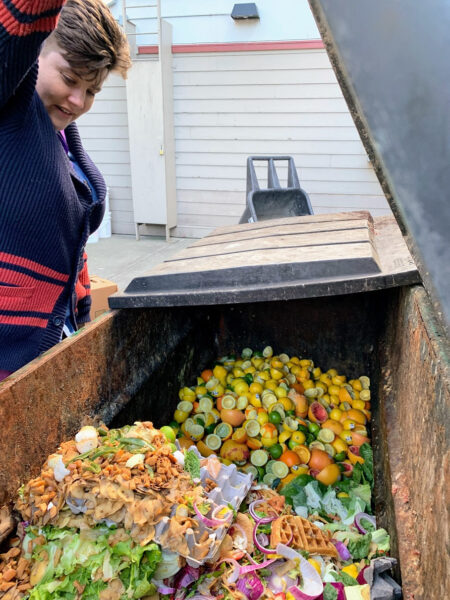
Picture taken by Rhea Borja, Town of Windsor staff
If you live in a multifamily apartment complex of five units or more, you may not have access to curbside organics recycling. However, multifamily residents are still required to recycle their organic waste. Multifamily residents have two options for disposal of organic waste:
1) Subscribe to and participate in their jurisdiction’s organics curbside collection service OR 2) self-haul your own organic materials to a local disposal facility (fees apply).
I'm a multifamily tenant. What do I need to do?
It is the responsibility of multifamily residents to properly sort their organic waste into the correct containers.
What materials should be disposed of in the organics bin?
The acceptable organic materials for multifamily tenants are the same as for single-family units. The only difference might be the size and shape of your organics bin or box. Dispose of food scraps, yard waste and food-spoiled paper in your unit's organics container. We encourage the use of kitchen pails to collect food scraps and soiled paper, and then transport these scraps into the larger organics bin or box on collection day. For a full list of materials, see the Curbside Services page.
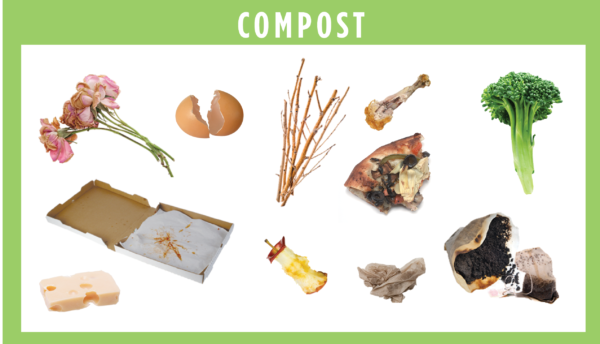
A sample of what materials to put in the compost bin
How can I get a kitchen pail for my food scraps?
Recology Sonoma Marin customers can contact Customer Service at (800) 243-0291 (M-F 7a-6p) or visit their Santa Rosa office at 3400 Standish Ave. (M-F 7:30a-5:30p). Available to Recology SM customers only; while supplies last; limit one per customer.
Sonoma county residents can also purchase many different varieties of kitchen scrap pails that fit their specific space and design considerations. If you are concerned about odors, consider purchasing a kitchen pail with a vented lid and/or charcoal filter. If you concerned about bugs, consider buying a container that can be kept in the fridge or freezer to slow decomposition.
Remember that "compostable" and "biodegradable" bags are not accepted in the organics bin. However, you can line your kitchen pail with compostable bags that you empty and reuse. You can also line kitchen pails with newspaper, paper bags, paper towels, napkins, etc. to reduce liquid mess.
Treehugger.com has complied a list of their favorite counter-top compost bins here.
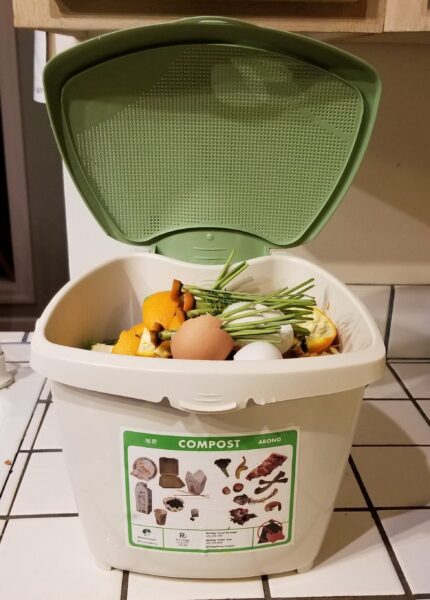
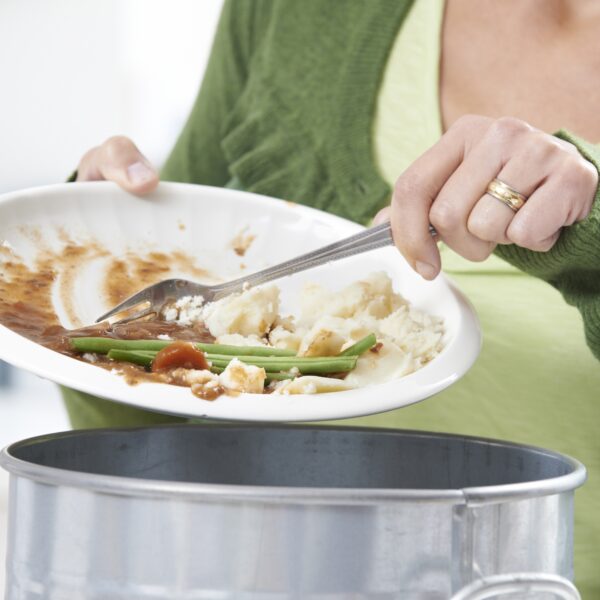
Step 1: Collect food scraps
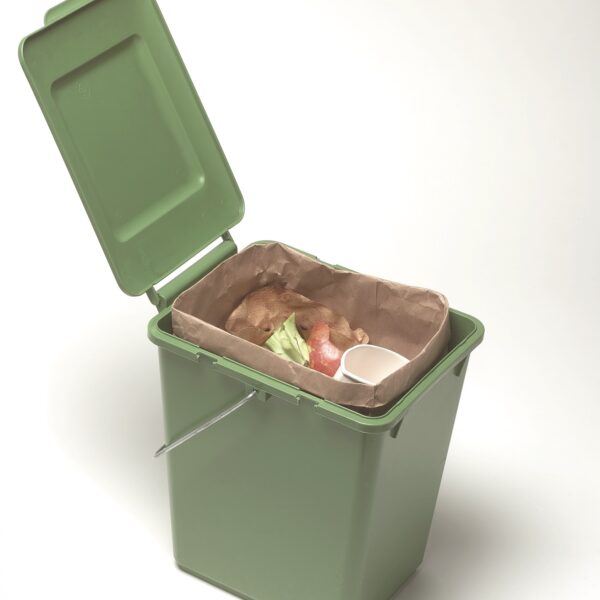
Step 2: Add food scraps to counter-top compost bin
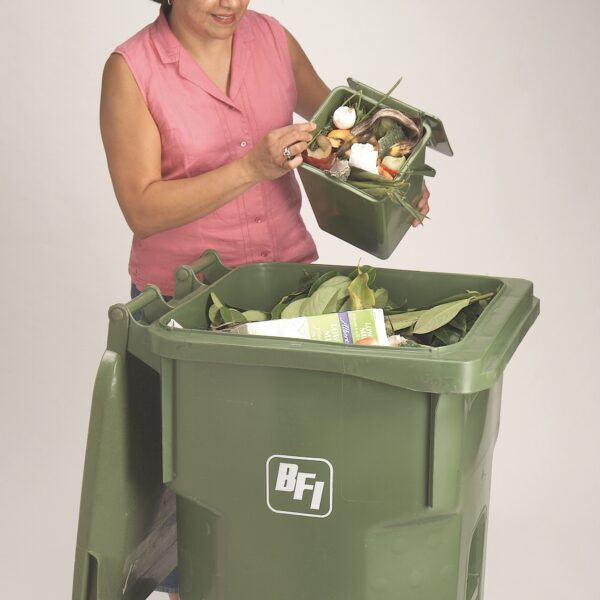
Step 3: Empty table-top compost bin into the organics bin provided by your waste hauler
All multifamily residences with five (5) or more units are required to provide organics recycling. If your multifamily complex does not provide organics recycling, please email us at ZWS-SB1383@sonoma-county.org or call the Eco-Desk hotline at (707) 565-3375.
Property owners/managers are required to:
Resources for Landlords and Property Managers
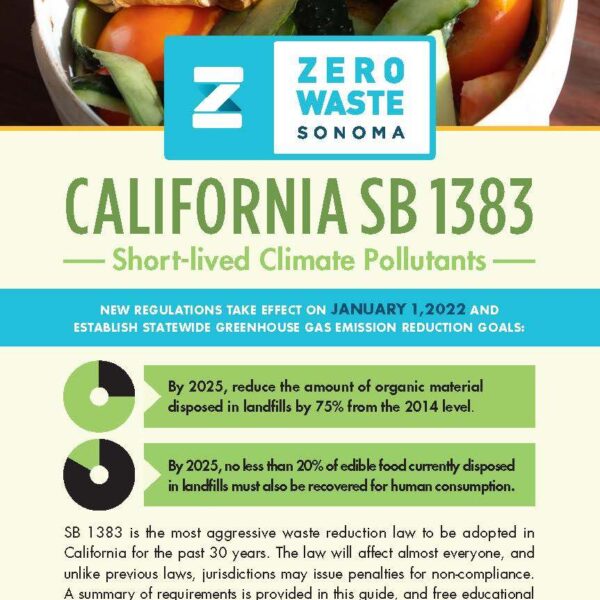
Download the English language SB 1383 Guide here.